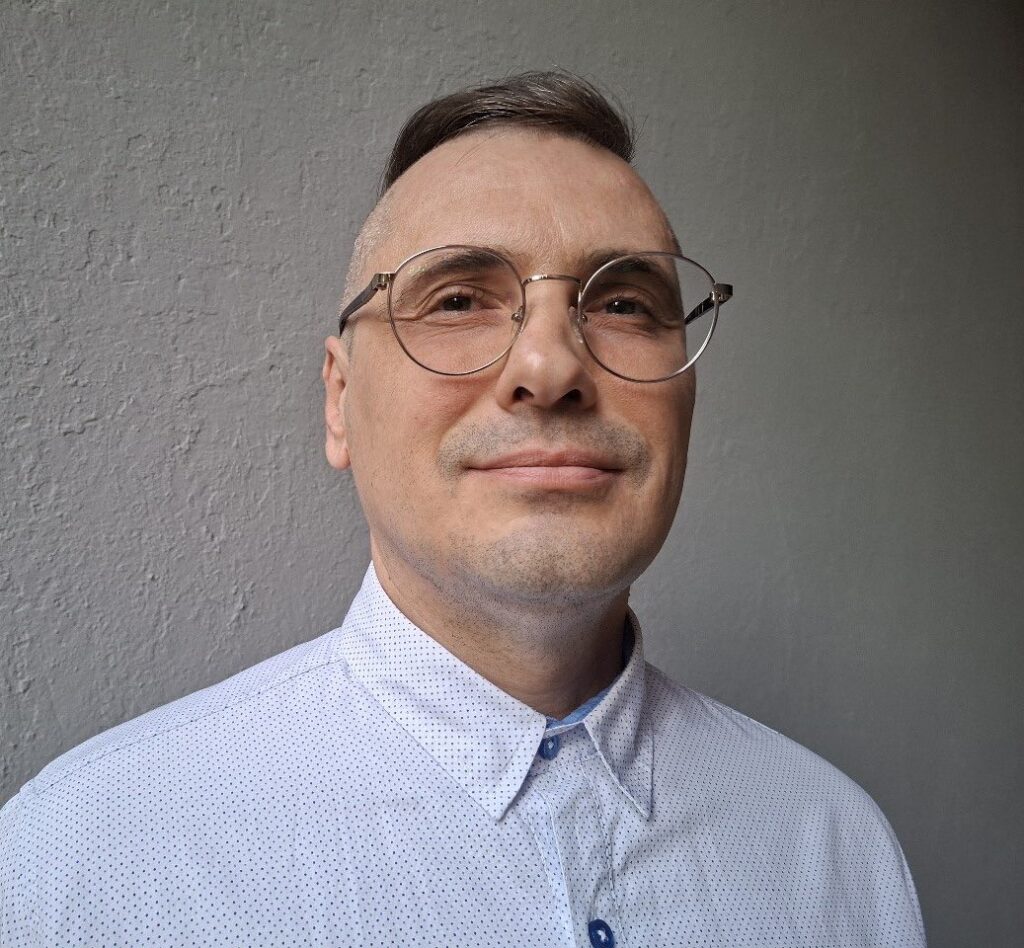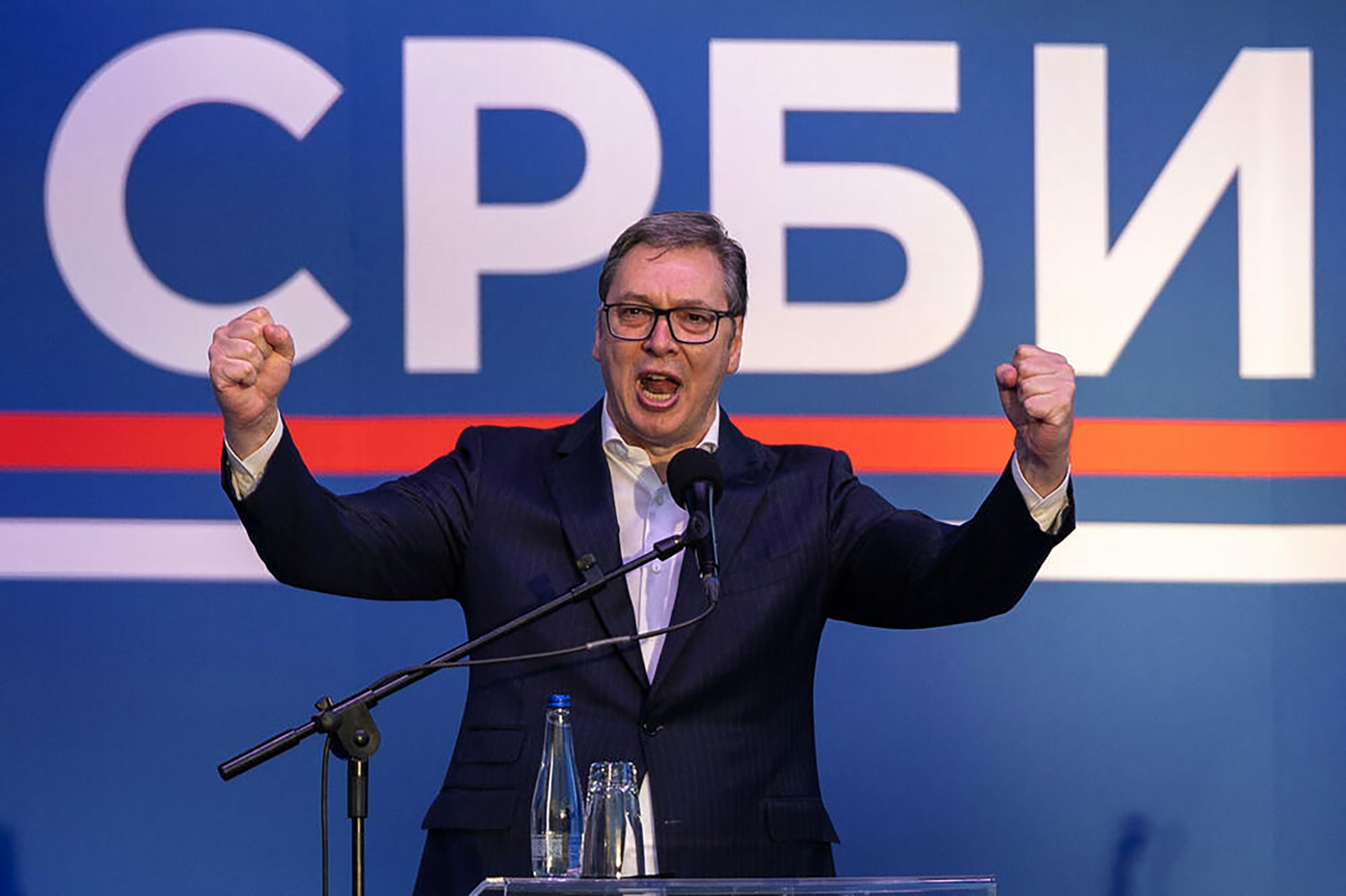It is a two-faced dance between the EU, which would not integrate Serbia even if it were a fully democratic state, and the Serbian president, who is aware of this and still crosses the red lines on an everyday basis.
Aleksandar Vučić was the only president of an EU candidate country who was in Moscow at the military parade on the occasion of the 80th anniversary of the victory over fascism and the Russian falsification of history. The Serbian president met with Russian President Vladimir Putin and Chinese leader Xi Jinping, to whom he boasted that he was successfully stifling democracy by fighting “color revolutions”.
The only EU statesman in Vučić’s company was the Prime Minister of Slovakia, Robert Fico, with whom they released a joint video in Russia with the message: we are here – so what.
Because of their stay in Moscow, European leaders criticized Vučić and Fico, and there was talk of stopping Serbia’s European path. But in the epilogue, a few days later, the President of the European Council, Antonio Costa, started his Balkan tour precisely from Serbia.
If he had managed to take a picture with US President Donald Trump, Vučić would have completed the photo gallery of the “four pillars” of Serbian foreign policy – USA, Russia, China and the EU – in just a few days. It is an unwritten foreign policy strategy that was started in 2008 by the then President of Serbia, Boris Tadić, after the declaration of Kosovo’s independence.
Two decades of impromptu diplomacy
It is all about improvised diplomacy, useful only for the promotion of personal regimes. However, the practice of almost two decades of such an undefined Serbian foreign policy was ultimately accepted as a reality and it has now began to produce results, which could leave a long-term negative impression on the politics and society of this country.
First of all, it contributes to the entrenchment of strong anti-Western sentiments in Serbian society, which in sociological research vary from 50 to 70 percent, depending on the formulation of the question. If NATO is mentioned in the questionnaire for public opinion research, the anger of the people due to the intervention of the alliance in 1999 could grow up to 90 percent.
Although officials in Belgrade talk about the “four pillars” of Serbian diplomacy, what is in question is the policy popularly called in the media “sitting on two chairs” and the traditional maneuvering of Serbia between Western Europe and Russia. The “four pillars” policy in particular opened the door wide for Russian influence in Serbia and the Western Balkans, which in recent years has reached its peak since the end of World War II.
Due to the war in Ukraine, Putin’s influence in the region has been weakened, but the Russian agency works quietly and diligently on all sides of the divided Serbian society. While the patriarch of the Serbian Orthodox Church, Porfirije, complains to Putin in front of the cameras that the students are supposedly besieged by the Western devil, the popular Orthodox Russian red flags with the image of Jesus, which are used by Russian mercenaries in their war campaign against Ukraine, are being widely waved at the student protests against the government.
Aleksandar Vučić grew up in the politics of the war years of the 90s and learned the lesson of his predecessors. Unlike the Serbian leaders Slobodan Milošević, Vojislav Koštunica and Boris Tadić, Vučić knows that he must not directly confront the West and that he should give everything that the Western leaders ask of him in the economic sense.
In neoliberal globalism, the “four pillars” of Vučić’s Serbian economy always produce good results, at least in favor of his personal political interests. Something is bought from everyone and everyone is given some lucrative job. The French – weapons, the Germans – lithium, China – construction, Russia – energy.
Finally – the question of safety. After the fall of socialism, during the 90s Serbia showed what kind of war problems it can create in the region, if there are major global changes. Although the West tried to dismantle Serbia as a military power, the political aspirations of “Greater Serbia” remained intact. The processes of the Hague Tribunal for war crimes committed in the former Yugoslavia did not lead to permanent reconciliation in the region and confrontation with its past. In Serbia, that court is considered anti-Serb, and the lost wars in the neighboring republics are felt as the hatred of the community towards the Serbs. The students protesting in Serbia about the mentioned issues do not reveal their stance, but the strong conservative spirit of these protests – the “No Surrender” of Kosovo flag and the Chetnik iconography – speak of the fact that if there is a change of government, only one problem of Serbia’s stagnation will be removed – Aleksandar Vučić. Everything else stays.
Fear of its own people
In these circumstances, Brussels has no choice but to simply warn Aleksandar Vučić, express concern, express regret or threaten to suspend European integration. But, because of Vučić, the EU will not really lower the ramp to European integration, which it cannot realize on its own towards Serbia. It is a dance of double hypocrisy, as the EU would not integrate Serbia even if it were a perfectly democratic country and a conscientious candidate, because there is currently no political will for such a thing in the Union. On the other hand, Vučić and his political party know very well that the EU will not exclude them from European integration, so they cross the red lines on an everyday basis. Thus, we have gone from the form of “stabilocracy” of the Vučić regime, in which peace and macroeconomic stability are the most important, to the point where Brussels turns a blind eye to all violations of human and democratic rights in Serbia.
After all the pressure that the regime of the Serbian Progressive Party exerts on dissidents, from political persecution and imprisonment, to the beating and trampling of demonstrators in the streets, it is a real miracle that in half a year of mass protests, no one in Serbia died directly at the hands of the regime. That is why 16 people lost their lives due to corruption and the fall of the canopy at the railway station in Novi Sad, which caused the biggest political crisis in Serbia since 2000.
The ultimate display of cynicism is that for months EU bureaucrats closed their eyes and remained silent on the student protests, even though the Serbian youth was only asking for what Serbia is obliged to do according to the negotiation process for EU membership.
The candidacy and promise of membership in the EU still remains one of the most important levers of Brussels’ influence on Serbia.
Therefore, Vučić can still freely travel to Moscow, meet with Putin and Xi Jinping, without fear that apart from strong words, someone will isolate Serbia. The West remembers Slobodan Milošević and what the consequences were when the door was completely closed due to a dictator, who was holding an entire nation hostage, and thus punished an entire national collective.
Vučić’s greatest fear is from his own people, who are now, more than ever in his 13-year rule, ready for a revolution. If that happens, Vučić and his political party can certainly count on hiding behind their “two pillars”, as friends of the dictator, just as the families of Serbian President Slobodan Milošević and former Ukrainian President Viktor Yanukovych could.
The articles published in the “Opinions” column reflect the personal opinion of the author and may not coincide with the position of the Center
Boris Varga. Serbian political scientist and journalist.



